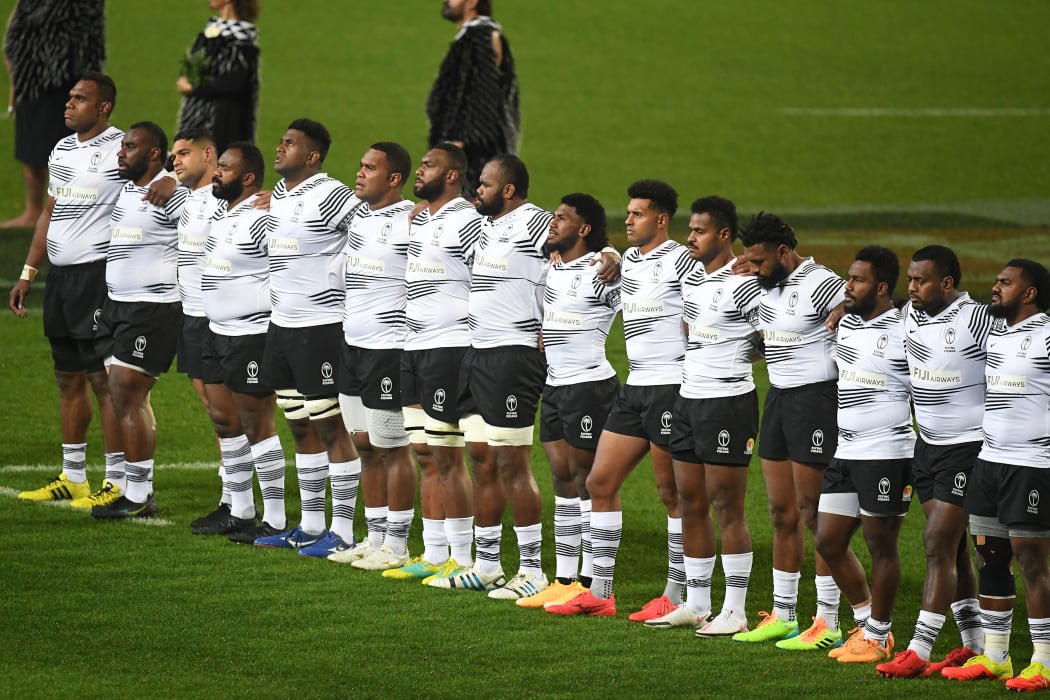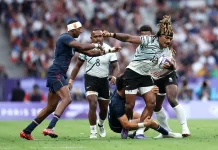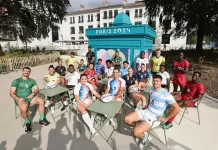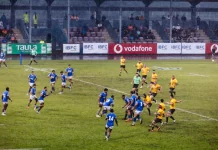Fiji’s victory over Australia at the World Cup was a boost for smaller rugby nations and a sign of the Pacific islanders’ rapid improvement, but structural issues within the game mean it is likely to be the exception rather than the norm.
They won 22-15 in Saint-Etienne as a team improved by the investment made in developing nations by World Rugby provided the big upset of the World Cup so far.
Fijian Drua’s entry into Super Rugby has been a game-changer in providing regular high-level opposition, while a similar investment in South America to boost Chile and Uruguay is starting to bear fruit.
In total, World Rugby has spent 40 million pounds (US$50 million) helping teams outside of the top nations prepare for the tournament in France, allowing for warm-up fixtures, consultants to help with technical and tactical plans, and high performance training.
A change to World Rugby’s eligibility laws in 2021 has also allowed players to switch allegiance to a country with which they had links through their heritage, which has mostly benefitted Pacific island nations with former New Zealand and Australia internationals adding test match experience.
For some these measures have been a major fillip, but for others it will never be enough as what they need is regular competition against top international teams and a professional set-up where players can focus on rugby.
It is rare for tier two sides to get the opportunity to play against the leading nations outside of the World Cup as these fixtures are not viewed as attractive for fans or broadcasters, limiting their exposure and providing a huge step up in quality when they reach the global finals.
“We are an amateur union and some players had to quit their jobs to come and play at the World Cup,” Namibia coach Allister Coetzee said.
“Some are travelling five hours to a training session and then five hours home again. But Fiji is a great example. What you see now is a result of continuous support over the years.”
The idea of a Shield tournament at future World Cups has been mooted to provide added fixtures for those sides that don’t make the quarter-finals.
“We would support anything just to get to play more on the international stage,” Coetzee said.
Tonga looked rusty in their opening 59-16 loss to Ireland and came into the World Cup undercooked according to defence coach Dale MacLeod, who illustrated the challenges faced by those outside the Rugby Championship and Six Nations.
“I think we are the only team who didn’t play a tier one nation or come early and play a game,” he said. “We tried to organise one but they couldn’t do it. When you go into a World Cup and you’ve had a month off, that is tough for anyone.”
Wales coach Warren Gatland believes an expansion of the World Cup from the current 20 teams would be a step in the right direction by exposing more nations to the pinnacle of the game.
“It is important that we continue, from a rugby perspective, to help develop these tier two nations,” he said. “There might be a situation where we can increase the number of teams in the World Cup to 24, and that would continue to help grow the game.”
It would help, but what teams like Namibia and Tonga really need is professional structures and quality opposition in the four years between World Cups.
Coetzee says for now Fiji provide the blue-print: “Fiji is a fairytale, to see how those guys have improved. That is the way going forward for a team like Namibia as well.”
SOURCE: REUTERS/PACNEWS


















